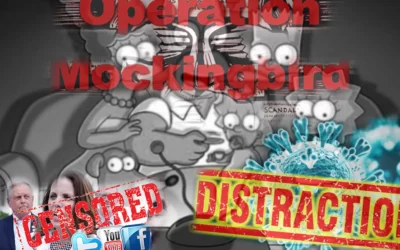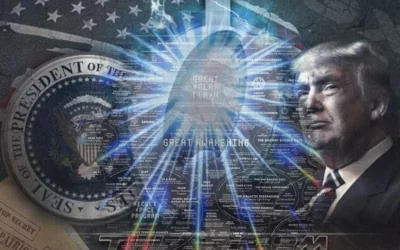 Representatives of the Libertarian, Green, Constitution, and Justice parties have held a presidential debate in Chicago.
Representatives of the Libertarian, Green, Constitution, and Justice parties have held a presidential debate in Chicago.
Four third-party candidates, who were not invited to the presidential debates between President Barack Obama and former Massachusetts Governor Mitt Romney, have faced eachother in Chicago.
Tuesday’s debate was hosted by the Free and Equal Elections Foundation, a group promoting a more open electoral process, and moderated by talk show host Larry King.
“It’s a two-party system, but not a two-party system by law,” King said. Obama and Romney were also invited, but declined to attend.
The participants included former Salt Lake City mayor Rocky Anderson, former Virginia congressman Virgil Goode, former New Mexico governor Gary Johnson, and Green Party nominee Jill Stein, who ran against Romney in Massachusetts in 2002.
When asked about the Pentagon’s budget, during the debate, all four candidates agreed that military spending should be cut. Goode was perhaps the most circumspect; the other candidates called for big cuts.
For instance, Johnson said military spending should be cut by 43 per cent.
Goode, who voted to authorise the war in Iraq in 2003, said: “If I’m elected president … part of the cuts have to be in the Deparmtent of Defence. We cannot do as Mitt Romney and Paul Ryan suggest. I support a strong defence but we need to retrench rather than being the policeman of the world.”
In response, Johnson said: “The biggest threat to our national security is the fact that we’re bankrupt.” He supports a 43 per cent reduction in military spending – 2003 spending levels, he pointed out.
Stein, the Green Party nominee, said: “A foreign policy based on militarism … is making us less secure, not more secure. We need to cut the budget and bring the troops home.”
Since 1988, candidates have only been invited by the Commission on Presidential Debates to participate if polls find they have more than 15 per cent support.
So far, only one candidate has met that criterion, the billionaire Ross Perot, who debated Bill Clinton and George H W Bush in 1992.
Alternative presidential debates for third-party candidates have been held since 1996, but George Farah, author of No Debate: How the Republican and Democratic Parties Secretly Control the Presidential Debates, says he “[doesn’t] remember one getting this much attention, having Larry King moderate it.”
A second third-party match-up will be held on October 30.
High threshold
Farah describes the 15 per cent threshold as “just substantially too high”.
He notes that in order to receive federal matching funds, parties only have to have received five per cent of the vote in the previous election. “It doesn’t make any sense. It’s an arbitrary figure,” he told Al Jazeera.
Farah says third-party or independent candidates face “Herculean structural barriers”, arguing they face a fundraising disadvantage compared to Republican and Democratic candidates, and have to collect huge numbers of signatures in some states to get their names printed on the ballot.
Another hurdle is the structure of the US winner-take-all electoral system. Research shows third-party candidates perform better in countries that have proportional representation or instant runoff voting systems.
Although most public opinion polls of the presidential race do not ask whether voters support third-party candidates, one Gallup survey released in September found that three per cent nationally say they will vote for either Stein, Johnson, or Goode.
In many states, citizens will not be able to vote for third-party candidates even if they want to.
“It’s a two-party system, but not a two-party system by law.“
– Larry King
The US has a highly complex patchwork of ballot access laws, and all 50 states have somewhat different requirements for candidates’ names to be printed on the ballot.
Candidates not affiliated with either major party must collect a certain number of signatures from voters in order for their names to be automatically printed on ballots.
If they fail to meet this threshold, some states allow third-party candidates’ names to be manually written in by voters instead.
Certain states, like North Carolina and Oklahoma, are notoriously difficult for third-party candidates to gain access; others, like Louisiana, are much easier.
Only Obama and Romney are on the ballot in all 50 states and Washington, although Johnson is close, with 48 state ballots listing his name.
Records broken
Richard Winger, who runs the website Ballot Access News, thinks third-party candidates are likely to receive a higher share of the vote this year than in 2008.
He attributes this partly to the high enthusiasm for Barack Obama in 2008.
“There was so much optimism and happiness” about Obama and about electing the country’s first black president, he told Al Jazeera. As a result, less than 1.5 per cent of the vote went to minor parties.
Winger said the state which will deliver the highest share of its vote to third-party candidates “may very well be Alaska”.
Because it is four time zones behind the East Coast, many voters already know who will win, explains Winger.
He notes that Ralph Nader, who ran in every presidential election from 1992 to 2008, received a greater share of the vote there in 2004 than in any other state.
Farah also predicts a higher share of voters in New Mexico than in other states will choose third-party candidates as Johnson used to govern the state and “remains quite popular” there.
Third-party candidates have already broken one record this year: Winger says that there are 27 individuals this year whose names are on the ballot in at least one state. The previous record was 23, set in the 1992 election.
The debate was broadcast by Al Jazeera and Russia Today but on no major US cable news networks
via Al-Jazeera



